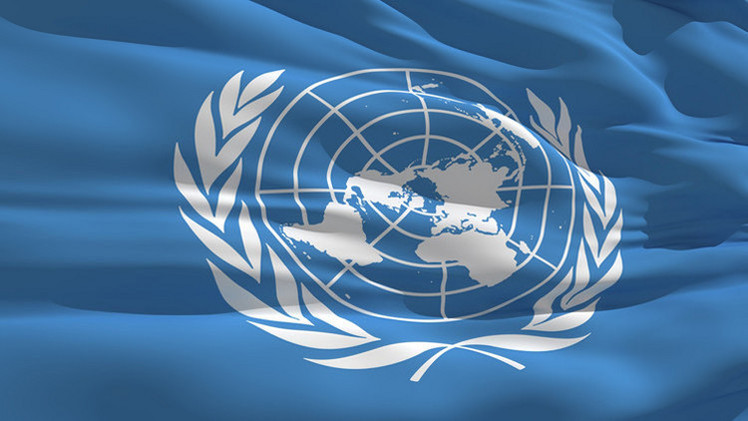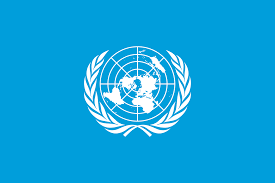البروتوكول الاختياري الثاني للعهد الدولي الخاص بالحقوق المدنية والسياسية ، الهادف إلى إلغاء عقوبة الإعدام
البروتوكول الاختياري الثاني للعهد الدولي الخاص بالحقوق المدنية والسياسية ، الهادف إلى إلغاء عقوبة الإعدام
Second Optional Protocol to the International Covenant on Civil and Political Rights, aiming at the abolition of the death penalty

الدخول حيز التنفيذ
11 تموز / يوليه 1991 ، طبقاً للمادة 8 (1).
تسجيل :
11 يوليو 1991 ، رقم 14668
حالة :
الموقعون: 40 الأطراف: 90
ملحوظة :
اعتمد البروتوكول المذكور ، الذي تتساوى في الحجية نصوصه العربية والصينية والإنجليزية والفرنسية والروسية والإسبانية ، بموجب القرار 44/1281 المؤرخ 15 كانون الأول / ديسمبر 1989 في الدورة الرابعة والأربعين للجمعية العامة للأمم المتحدة وهو مفتوح للتوقيع في مقر الأمم المتحدة في نيويورك من قبل جميع الدول التي وقعت على العهد الدولي الخاص بالحقوق المدنية والسياسية.
| Participant | Signature | Ratification, Accession(a), Succession(d) |
| Albania | 17 Oct 2007 a | |
| Andorra | 5 Aug 2002 | 22 Sep 2006 |
| Angola | 24 Sep 2013 | 2 Oct 2019 |
| Argentina | 20 Dec 2006 | 2 Sep 2008 |
| Armenia | 26 Sep 2019 | 18 Mar 2021 |
| Australia | 2 Oct 1990 a | |
| Austria | 8 Apr 1991 | 2 Mar 1993 |
| Azerbaijan | 22 Jan 1999 a | |
| Belgium | 12 Jul 1990 | 8 Dec 1998 |
| Benin | 5 Jul 2012 a | |
| Bolivia (Plurinational State of) | 12 Jul 2013 a | |
| Bosnia and Herzegovina | 7 Sep 2000 | 16 Mar 2001 |
| Brazil | 25 Sep 2009 a | |
| Bulgaria | 11 Mar 1999 | 10 Aug 1999 |
| Cabo Verde | 19 May 2000 a | |
| Canada | 25 Nov 2005 a | |
| Chile | 15 Nov 2001 | 26 Sep 2008 |
| Colombia | 5 Aug 1997 a | |
| Costa Rica | 14 Feb 1990 | 5 Jun 1998 |
| Croatia | 12 Oct 1995 a | |
| Cyprus 2 | 10 Sep 1999 a | |
| Czech Republic | 15 Jun 2004 a | |
| Denmark | 13 Feb 1990 | 24 Feb 1994 |
| Djibouti | 5 Nov 2002 a | |
| Dominican Republic | 21 Sep 2016 a | |
| Ecuador | 23 Feb 1993 a | |
| El Salvador | 8 Apr 2014 a | |
| Estonia | 30 Jan 2004 a | |
| Finland | 13 Feb 1990 | 4 Apr 1991 |
| France | 2 Oct 2007 a | |
| Gabon | 2 Apr 2014 a | |
| Gambia | 20 Sep 2017 | 28 Sep 2018 |
| Georgia | 22 Mar 1999 a | |
| Germany 3 | 13 Feb 1990 | 18 Aug 1992 |
| Greece | 5 May 1997 a | |
| Guinea-Bissau | 12 Sep 2000 | 24 Sep 2013 |
| Honduras | 10 May 1990 | 1 Apr 2008 |
| Hungary | 24 Feb 1994 a | |
| Iceland | 30 Jan 1991 | 2 Apr 1991 |
| Ireland | 18 Jun 1993 a | |
| Italy | 13 Feb 1990 | 14 Feb 1995 |
| Kazakhstan | 23 Sep 2020 | 24 Mar 2022 |
| Kyrgyzstan | 6 Dec 2010 a | |
| Latvia | 19 Apr 2013 a | |
| Liberia | 16 Sep 2005 a | |
| Liechtenstein | 10 Dec 1998 a | |
| Lithuania | 8 Sep 2000 | 27 Mar 2002 |
| Luxembourg | 13 Feb 1990 | 12 Feb 1992 |
| Madagascar | 24 Sep 2012 | 21 Sep 2017 |
| Malta 4 | 29 Dec 1994 a | |
| Mexico | 26 Sep 2007 a | |
| Monaco | 28 Mar 2000 a | |
| Mongolia | 13 Mar 2012 a | |
| Montenegro 5 | 23 Oct 2006 d | |
| Mozambique | 21 Jul 1993 a | |
| Namibia | 28 Nov 1994 a | |
| Nepal | 4 Mar 1998 a | |
| Netherlands (Kingdom of the) 6 | 9 Aug 1990 | 26 Mar 1991 |
| New Zealand 7 | 22 Feb 1990 | 22 Feb 1990 |
| Nicaragua | 21 Feb 1990 | 25 Feb 2009 |
| North Macedonia | 26 Jan 1995 a | |
| Norway | 13 Feb 1990 | 5 Sep 1991 |
| Panama | 21 Jan 1993 a | |
| Paraguay | 18 Aug 2003 a | |
| Philippines | 20 Sep 2006 | 20 Nov 2007 |
| Poland | 21 Mar 2000 | 25 Apr 2014 |
| Portugal | 13 Feb 1990 | 17 Oct 1990 |
| Republic of Moldova | 20 Sep 2006 a | |
| Romania | 15 Mar 1990 | 27 Feb 1991 |
| Rwanda | 15 Dec 2008 a | |
| San Marino | 26 Sep 2003 | 17 Aug 2004 |
| Sao Tome and Principe | 6 Sep 2000 | 10 Jan 2017 |
| Serbia | 6 Sep 2001 a | |
| Seychelles | 15 Dec 1994 a | |
| Slovakia | 22 Sep 1998 | 22 Jun 1999 |
| Slovenia | 14 Sep 1993 | 10 Mar 1994 |
| South Africa | 28 Aug 2002 a | |
| Spain 8 | 23 Feb 1990 | 11 Apr 1991 |
| State of Palestine | 18 Mar 2019 a | |
| Sweden | 13 Feb 1990 | 11 May 1990 |
| Switzerland | 16 Jun 1994 a | |
| Timor-Leste | 18 Sep 2003 a | |
| Togo | 14 Sep 2016 a | |
| Türkiye | 6 Apr 2004 | 2 Mar 2006 |
| Turkmenistan | 11 Jan 2000 a | |
| Ukraine | 25 Jul 2007 a | |
| United Kingdom of Great Britain and Northern Ireland | 31 Mar 1999 | 10 Dec 1999 |
| Uruguay | 13 Feb 1990 | 21 Jan 1993 |
| Uzbekistan | 23 Dec 2008 a | |
| Venezuela (Bolivarian Republic of) | 7 Jun 1990 | 22 Feb 1993 |
Declarations and Reservations
(Unless otherwise indicated, the declarations and reservations were made
upon ratification, accession or succession.)
| Azerbaijan 9 Reservation: 28 September 2000 “It is provided for the application of the death penalty in time of war pursuant to a conviction of a person for a most serious crime of a military nature committed during wartime.” |
| Brazil Reservation: … with an express reservation to article 2. |
| Chile Reservation: The State of Chile formulates the reservation authorised under article 2, paragraph 1, of the Second Optional Protocol to the International Covenant on Civil and Political Rights, aiming at the abolition of the death penalty, and may in consequence apply the death penalty in time of war pursuant to a conviction for a most serious crime of a military nature committed during wartime. |
| Cyprus 2 |
| El Salvador Reservation: The Government of the Republic of El Salvador accedes to the Second Optional Protocol to the International Covenant on Civil and Political Rights aiming at the abolition of the death penalty with an express reservation permitted to States under article 2 of the Protocol, which consists on the application of the death penalty in accordance with article 27 of the Constitution of the Republic of El Salvador, which reads as follows: ‘The death penalty may be imposed only in the cases provided by the military laws during an international state of war’. |
| Greece Reservation: Subject to article 2 for the application of the death penalty in time of war pursuant to a conviction for a most serious crime of a military nature committed during wartime. |
| Guinea-Bissau Declaration Hereby declare that the declaration the Government has made in accordance with Article 41 of the International Covenant on Civil and Political Rights to recognize the competence of the Human Rights Committee to receive and consider communications when a State Party claims that another State Party is not fulfilling its obligations do not extend to the provisions of the Second Optional Protocol, as provided in Article 4 thereof. Also, declare that the competence that the Government of Guinea-Bissau recognizes for the Human Rights Committee to receive and consider communications from individuals subject to its jurisdiction does not extend to the provisions of the Second Optional Protocol, in accordance with the option provided in Article 5 thereof. |
| Malta 4 |
| Republic of Moldova Declaration: “Until the full re-establishment of the territorial integrity of the Republic of Moldova, the provisions of the Convention shall be applied only on the territory controlled effectively by the authorities of the Republic of Moldova. “ |
Objections
(Unless otherwise indicated, the objections were made upon
ratification, accession or succession.)
| Austria 7 April 2015With regard to the reservation made by El Salvador upon accession: “The Government of Austria has examined the reservation made by the Republic of El Salvador upon accession to the Second Optional Protocol to the International Covenant on Civil and Political Rights, aiming at the abolition of the death penalty, adopted on 15 December 1989. The Government of Austria recalls that it is the object and purpose of the Second Optional Protocol to abolish the death penalty in all circumstances and that no reservations are permitted other than reservations made within the limits of Article 2 of the Protocol. In the light of the wording of Article 2 (1), a reservation to the Protocol is allowed to the extent that it concerns the application of the death penalty in times of war pursuant to a conviction for a most serious crime of a military nature committed during wartime. According to Article 2 (2), the State Party making such a reservation shall at the time of ratification or accession communicate to the Secretary-General of the United Nations the relevant provisions of its national legislation applicable during wartime. According to the information available, the applicable provisions of the national legislation of El Salvador specifying the application of the death penalty to the most serious crimes of a military nature in wartime were not communicated to the Secretary-General. The Government of Austria therefore objects to this reservation. This objection shall not preclude the entry into force of the Protocol between Austria and the Republic of El Salvador.” |
| Finland 27 September 2010With regard to the reservation made by Brazil upon accession: “The Government of Finland welcomes the accession of Brazil to the Second Optional Protocol to the International Covenant on Civil and Political Rights, and has taken note of the reservation made by Brazil to Article 2 thereof upon accession. The Government of Finland recalls that it is the object and purpose of the Second Optional Protocol to abolish the death penalty in all circumstances and reservations are, as a main rule, not admissible. This object of aiming at the complete abolition of the death penalty enjoys the full support of Finland. However, the Government observes that, in the light of the wording of Article 2(1), a reservation to the Protocol is allowed to the extent it concerns the application of the death penalty in time of war pursuant to a conviction for a most serious crime of a military nature committed during wartime. The acceptability of such a reservation requires that the State Party making the reservation communicates, at the time of ratification or accession, to the Secretary-General of the United Nations the relevant provisions of its national legislation applicable during wartime. Accordingly, the Government of Finland would find the reservation made by Brazil acceptable, provided it meets the requirements set out in Article 2(1) and (2). According to information available to the Government, the applicable provisions of the national legislation of Brazil were not communicated to the Secretary-General at the time of accession. Therefore, the Government of Finland objects to the reservation. Should, to the contrary, Brazil have communicated the provisions to the Secretary-General pursuant to Article 2(2), this objection may be considered null and void. This objection shall not preclude the entry into force of the Protocol between Brazil and Finland. The Protocol will thus become operative between the two states without Brazil benefiting from its reservation.” 7 April 2015With regard to the reservation made by El Salvador upon accession: “The Permanent Mission of Finland to the United Nations presents its compliments to the Secretary-General of the United Nations and, referring to the Depositary Notification C.N.201.2014.TREATIES-IV.12 of 8 April 2014 concerning the accession of the Republic of El Salvador to the Second Optional Protocol to the International Covenant on Civil and Political Rights, aiming at the abolition of the death penalty, has the honour to communicate the following statement: The Government of Finland has carefully examined the reservation made by the Republic of El Salvador to Article 2 of the Second Optional Protocol to the International Covenant on Civil and Political Rights, aiming at the abolition of the death penalty. The Government of Finland recalls that it is the object and purpose of the Second Optional Protocol to abolish the death penalty in all circumstances and reservations are, as a main rule, not admissible. This object of aiming at the complete abolition of the death penalty enjoys the full support of Finland. However, the Government observes that, in light of the wording of Article 2(1), a reservation to the Protocol is allowed to the extent it concerns the application of the death penalty in time of war pursuant to a conviction for a most serious crime of a military nature committed during wartime. The acceptability of such a reservation requires that the State Party making the reservation communicates, at the time of ratification or accession, to the Secretary-General of the United Nations the relevant provisions of its national legislation applicable during wartime. Accordingly, the Government of Finland would find the reservation made by the Republic of El Salvador acceptable provided it meets the requirements set out in Article 2(1) and (2). According to information available to the Government, the applicable provisions of the national legislation of the Republic of El Salvador were not communicated to the Secretary-General at the time of accession. Therefore, the Government of Finland objects to the reservation. This objection shall not preclude the entry into force of the Protocol between Finland and the Republic of El Salvador. The Protocol will thus become operative between the two States without the Republic of El Salvador benefitting from its reservation.” |
| France 6 April 2015With regard to the reservation made by El Salvador upon accession: The Government of the French Republic has examined the reservation made by the Government of the Republic of El Salvador upon accession to the Second Optional Protocol to the International Covenant on Civil and Political Rights, aiming at the abolition of the death penalty. In that reservation, the Government of the Republic of El Salvador states that it intends to make use of the right contained in article 2, paragraph 1 of the Protocol, providing for application of the death penalty in certain situations, pursuant to article 27 of the Constitution of El Salvador, according to which “The death penalty may be imposed only in the cases provided by the military laws during an international state of war”. Article 2, paragraph 1 of the Protocol, however, requires that application of the death penalty be limited, “in time of war” to cases in which there is a “conviction for a most serious crime of a military nature committed during wartime”. The absence of a specific restriction on the reservation to the “most serious” crimes committed during wartime seems not to meet the requirements of article 2, paragraph 1 of the Protocol. In that regard, the reservation made by the Government of the Republic of El Salvador is inadmissible pursuant to the very provisions of the Protocol. Thus, the Government of the French Republic objects to the reservation made by the Government of the Republic of El Salvador to the Second Optional Protocol to the International Covenant on Civil and Political Rights, aiming at the abolition of the death penalty. This objection does not preclude the entry into force of this Protocol between France and El Salvador. |
| Germany 31 March 2015With regard to the reservation made by El Salvador upon accession: The Permanent Mission of the Federal Republic of Germany to the United Nations presents its compliments to the Treaty Section and, with reference to depositary notification C.N.201.2014.TREATIES-IV.l2 dated April 8, 2014 regarding the reservation made by the Republic of El Salvador upon its accession to the Second Optional Protocol to the International Covenant on Civil and Political Rights, aiming at the Abolition of the Death penalty of 15 December 1989, has the honour to communicate the following: The Government of the Federal Republic of Germany has carefully examined the reservation made by the Republic of El Salvador upon its accession to the Second Optional Protocol. It recalls, that the complete abolition of the death penalty is the object and purpose of the Second Optional Protocol, and that according to Article 2 reservations are not permissible with the one exception of a reservation that provides for the application of the death penalty in time of war pursuant to a conviction for a most serious crime of a military nature committed during war time. The Government of the Federal Republic of Germany believes that the reservation made by the Republic of El Salvador goes beyond the limits of Article 2 of the Optional Protocol, as it does not explicitly limit the application of the death penalty to the most serious crimes of a military nature. The Government of the Federal Republic of Germany therefore considers the reservation made by the Republic of El Salvador to be incompatible with the object and purpose of the Second Optional Protocol and that it consequently has to be considered impermissible. The Government of the Federal Republic of Germanytherefore objects to this reservation. This objection shall not preclude the entry into force of the Second Optional Protocol to the International Covenant on Civil and Political Rights, aiming at the Abolition of the Death Penalty of 15 December 1989 between the Federal Republic of Germany and the Republic of El Salvador. |
| Ireland 7 April 2015With regard to the reservation made by El Salvador upon accession: “The Government of Ireland welcomes the accession by the Republic of El Salvador to the Second Optional Protocol to the International Covenant on Civil and Political Rights, aiming at the abolition of the death penalty. The Government of Ireland has examined the reservation made by the Government of the Republic of El Salvador to Article 2 thereof upon accession and recalls that it is the object and purpose of the Second Optional Protocol to abolish the death penalty in all circumstances and that no reservations are permitted other than reservations made in strict accordance with Article 2 of the Protocol. The Government of Ireland considers that the reservation made by the Government of the Republic of El Salvador goes beyond the strict limits of Article 2 of the Protocol, as it neither explicitly limits the application of the death penalty to the most serious crimes of a military nature committed during wartime nor indicates the relevant provisions of the Republic of El Salvador’s national legislation applicable during wartime, which must be communicated, at the time of accession, to the Secretary-General of the United Nations. Should, however, the Government of the Republic of El Salvador have communicated clarification regarding these provisions to the Secretary-General pursuant to Article 2(2), this objection may be considered null and void. The Government of Ireland recalls that, according to customary international law, as codified in the Vienna Convention on the Law of Treaties, a reservation incompatible with the object and purpose of a treaty shall not be permitted. The Government of Ireland therefore objects to the aforesaid reservation made bythe Government of the Republic of El Salvador to Article 2 of the Second Optional Protocol to the International Covenant on Civil and Political Rights, aiming at the abolition of the death penalty. This objection shall not preclude the entry into force of the Protocol between Ireland and the Republic of El Salvador.” |
| Italy 2 April 2015With regard to the reservation made by El Salvador upon accession: “The Permanent Mission of Italy to the United Nations presents its compliments to the Secretary-General of the United Nations in his capacity as depositary of the 1989 Second Optional Protocol to the International Covenant on Civil and Political Rights aiming at the abolition of the death penalty. The Government of Italy has examined the reservation made by the Republic of El Salvador upon accession to the Second Optional Protocol to the International Covenant on Civil and Political Rights aiming at the abolition of the death penalty, adopted in New York on December 15, 1989. The Government of Italy recalls that it is the object and purpose of the Second Optional Protocol to abolish the death penalty in all circumstances and that no reservations are permitted other than reservations made in strict accordance with Article 2 of the Protocol. The reservation made by the Government of El Salvador goes beyond the limit of Article 2 of the Protocol, as it does not explicitly limit the application of the death penalty to the most serious crimes of a military nature committed during wartime, which must be specified. According to customary international law, as codified in the Vienna Convention on the Law of Treaties, a reservation incompatible with the object and purpose of a treaty shall not be permitted. The Government of Italy therefore objects to the aforesaid reservation made by El Salvador to the Second Optional Protocol to the International Covenant on Civil and Political Rights and considers the reservation null and void. This objection shall not preclude the entry into force of the Protocol between El Salvador and Italy. The Convention will enter into force between El Salvador and Italy without El Salvador [benefiting from the reservation.]” |
| Netherlands (Kingdom of the) 2 April 2015With regard to the reservation made by El Salvador upon accession: “The Government of the Kingdom of the Netherlands welcomes the accession of El Salvador to the Second Optional Protocol to the International Covenant on Civil and Political Rights, and has taken note of the reservation made by El Salvador with respect to Article 2 thereof upon accession. The Government of the Kingdom of the Netherlands recalls that it is the object and purpose of the Second Optional Protocol to abolish the death penalty in all circumstances and reservations are, as a main rule, not admissible. This object of aiming at the complete abolition of the death penalty enjoys the full support of the Kingdom of the Netherlands. However, the Government observes that, in the light of the wording of Article 2(1), a reservation to the Protocol is allowed to the extent that it concerns the application of the death penalty in times of war pursuant to a conviction for a most serious crime of a military nature committed during wartime. The acceptability of such a reservation requires that the State Party making the reservation communicates, at the time of ratification or accession, to the Secretary-General of the United Nations the relevant provisions of its national legislation applicable during wartime. Accordingly, the Government of the Kingdom of the Netherlands would find the reservation made by El Salvador acceptable, provided that it meets the requirements set out in Article 2(1) and (2). However, according to information available to the Government, the applicable provisions of the national legislation of El Salvador specifying the application of the death penalty to the most serious crimes of a military nature in wartime were not communicated to the Secretary-General at the time of accession. Therefore, the Government of the Kingdom of the Netherlands objects to the reservation. This objection shall not preclude the entry into force of the Protocol [between the Kingdom of the Netherlands and El Salvador].” |
| Norway 30 March 2015With regard to the reservation made by El Salvador upon accession: “The Permanent Mission of Norway to the United Nations presents its compliments to the Secretary-General of the United Nations, and, with reference to Depositary Notification C.N.201.2014.TREATIES-IV.12, has the honour to inform that the Government of Norway has examined the reservation made by the Government of El Salvador upon its accession to the Second Optional Protocol to the International Covenant on Civil and Political Rights, aiming at the abolition of the death penalty. The Government of Norway recalls that, pursuant to paragraph 1 of article 2, of the Optional Protocol, no reservation is permitted except for a reservation that provides for the application of the death penalty in time of war pursuant to a conviction for a most serious crime of a military nature committed during wartime. The Government of Norway notes that the reservation made by El Salvador goes beyond those situations where a reservation is permitted in accordance with paragraph 1 of article 2 of the Optional Protocol as the reservation does not explicitly limit the application of the death penalty to the most serious crimes of a military nature committed during wartime. The Government of Norway therefore objects to the reservation made by the Republic of El Salvador. This objection does not preclude the entry into force of the Second Optional Protocol, in its entirety, between Norway and El Salvador. The Second Optional Protocol thus becomes operative between Norway and the Republic of El Salvador without El Salvador benefiting from the aforesaid reservation.” |
| Poland 27 March 2015With regard to the reservation made by El Salvador upon accession: “The Government of the Republic of Poland has examined the reservation made by [the] Republic of El Salvador upon accession to the Second Optional Protocol to the International Covenant on Civil and Political Rights aiming at the abolition of the death penalty, adopted in New York on December 15, 1989. The Government of the Republic of Poland notes that the purpose and object of the Protocol is the complete abolition of the death penalty and that no reservation is admissible, except for a reservation which provides for the application of the death penalty in time of war pursuant to a conviction for a most serious crime of a military nature committed during wartime. While making the reservation [the] Republic of El Salvador invoked the article 27 of its Constitution, which refers to unspecified military laws. The Government of the Republic of Poland notes that [the] Republic of El Salvador refers in its reservation to the domestic legislation possibly affecting the application of the Protocol, including the admissibility of application of death penalty, without specifying the exact content of this legislation. As a result, it is impossible to clearly define the extent to which the reserving State will accept the application of the death penalty and if such an application will be limited to the most serious crimes of a military nature committed during wartime. Thus the reservation is not compatible with the art. 2 of the Protocol and it is incompatible with the object and purpose of the Protocol. According to customary international law as codified in the Vienna Convention on the Law of Treaties, a reservation that is incompatible with the object and purposeof a treaty shall not be permitted. Therefore, the Government of the Republic of Poland objects to the reservation made by [the] Republic of El Salvador upon accession to the Second Optional Protocol to the International Covenant on Civil and Political Rights aiming at the abolition of the death penalty and considers the reservation null and void. This objection does not preclude the entry into force of the Covenant between the Republic of El Salvador and [the] Republic of Poland.” |
| Portugal 1 April 2015With regard to the reservation made by El Salvador upon accession: “The Government of the Portuguese Republic has examined the reservation made by the Republic of El Salvador to the Second Optional Protocol to the International Covenant on Civil and Political Rights, aiming at the abolition of the death penalty, New York, 15 December 1989. Under Article 2, paragraph 1 of the Second Optional Protocol to the International Covenant on Civil and Political Rights, aiming at the abolition of the death penalty, New York, 15 December 1989, no reservation is admissible to the present Protocol, except for a reservation made at the time of ratification or accession that provides for the application of the death penalty in time of war pursuant to a conviction for a most serious crime of a military nature committed during wartime. The Government of the Portuguese Republic considers that the reservation made by the Republic of El Salvador goes beyond the limit of the exception foreseen in Article 2, paragraph 1, since its scope is unclear and does not clarify the cases in which the death penalty will be applicable. The Government of the Portuguese Republic therefore objects to the aforesaid reservation made by the Republic of El Salvador to Article 2 of the Second Optional Protocol to the International Covenant on Civil and Political Rights, aiming at the abolition of the death penalty, New York, 15 December 1989. However, this objection shall not preclude the entry into force of the Convention between the Portuguese Republic and the Republic of El Salvador.” |
| Spain 7 April 2015With regard to the reservation made by El Salvador upon accession: The Permanent Mission of Spain to the United Nations presents its compliments to the Secretariat of the United Nations and has the honour to communicate that the Kingdom of Spain declares that it objects to the reservation made by the Government of the Republic of El Salvador to article 2 of the Second Optional Protocol to the International Covenant on Civil and Political Rights, aiming at the abolition of the death penalty (New York, 15 December 1989). The Kingdom of Spain has examined the reservation made by the Republic of El Salvador to the Second Optional Protocol to the International Covenant on Civil and Political Rights and considers that it does not fall within the limits of the exception provided for in article 2, paragraph 1, of that Optional Protocol. The Government of the Kingdom of Spain considers that the reservation made by the Republic of El Salvador goes beyond those limits, since it does not specify its scope or the cases in which the death penalty would be applicable. Accordingly, the Kingdom of Spain objects to the aforementioned reservation made by the Republic of El Salvador to article 2 of the Optional Protocol to the International Covenant on Civil and Political Rights, aiming at the abolition of the death penalty, without prejudice to the entry into force of the [Protocol] as between the Kingdom of Spain and the Republic of El Salvador. |
| Sweden 25 August 2014With regard to the reservation made by El Salvador upon accession: “The Government of Sweden welcomes the accession of El Salvador to the Second Optional Protocol to the International Covenant on Civil and Political Rights, and has examined the reservation made by El Salvador to Article 2 thereof upon accession. The Government of Sweden recalls that it is the object and purpose of the Second Optional Protocol to abolish the death penalty in all circumstances and that no reservations are permitted other than reservations made in strict accordance with Article 2 of the Protocol. The reservation made by the Government of El Salvador goes beyond the limit of Article 2 of the Protocol, as it does not explicitly limit the application of the death penalty to the most serious crimes of a military nature committed during wartime, which must be specified. According to customary international law, as codified in the Vienna Convention on the Law of Treaties, a reservation incompatible with the object and purpose of a treaty shall not be permitted. It is in the common interest of States that treaties to which they have chosen to become parties are respected as to their object and purpose, by all parties, and that States are prepared to undertake any legislative changes necessary to comply with their obligations under the treaties. The Government of Sweden therefore objects to the aforesaid reservation made by El Salvador to the Second Optional Protocol to the International Covenant on Civil and Political Rights and considers the reservation null and void. This objection shall not preclude the entry into force of the Protocol between El Salvador and Sweden. The Protocol will enter into force between El Salvador and Sweden without El Salvador benefiting from this reservation.” |
| Switzerland 6 March 2015With regard to the reservation made by El Salvador upon accession: The Swiss Federal Council has examined the reservation made by the Government of the Republic of El Salvador upon ratification of the Second Optional Protocol to the International Covenant on Civil and Political Rights, aiming at the abolition of the death penalty, adopted on 15 December 1989. The Federal Council recalls that, pursuant to article 2, paragraph 1, of the Protocol, no reservation is admissible except for a reservation that provides for the application of the death penalty in time of war pursuant to a conviction for a most serious crime of a military nature committed during wartime. The Swiss Federal Council believes that the reservation does not meet those conditions of validity as it does not limit the death penalty in time of war to the most serious crimes. Neither the article of the constitution quoted in the reservation nor the military laws to which it refers indicate such a limitation. It is in the common interest of States that treaties to which they have chosen to become parties are respected by all parties, and that States are prepared to undertake any legislative changes necessary to comply with their treaty obligations. The Swiss Federal Council objects to the reservation made by the Republic of El Salvador. This objection does not preclude the entry into force of the Protocol, in its entirety, between the Republic of El Salvador and Switzerland. |
| Togo With regard to the reservation made by El Salvador upon accession: The Togolese Government, which has chosen to be unreservedly abolitionist, has examined the reservation made by the Government of El Salvador to article 2 of the Second Optional Protocol to the International Covenant on Civil and Political Rights, aiming at the abolition of the death penalty. The Togolese Government recalls that article 1, paragraph 1, of the Second Optional Protocol, by stipulating that “no one within the jurisdiction of a State Party to the present Protocol shall be executed”, specifically and unambiguously commits States Parties to abolish the death penalty under all circumstances and without exceptions. However, by not explicitly limiting the application of the death penalty to the most serious crimes of a military nature committed during wartime or indicating the relevant provisions of El Salvador’s national legislation applicable during wartime, which must be communicated, at the time of accession, to the Secretary-General of the United Nations, as required by the provisions of article 2 of the Protocol, the reservation made by the Government of El Salvador is incompatible with the spirit and letter of the Protocol. The Togolese Government therefore objects to the aforesaid reservation. However, this objection shall not preclude the entry into force of the Protocol between the Togolese Republic and the Republic of El Salvador. |





التعليقات مغلقة.